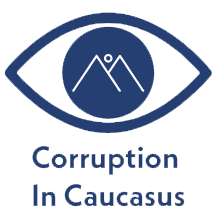Tbilisi, Georgia – Georgian authorities have taken decisive action against a sprawling international call center scam based in Tbilisi, freezing the assets of key individuals tied to a fraudulent investment operation that targeted thousands of victims across the globe.
The scheme, uncovered through a sweeping international investigation dubbed Scam Empire, defrauded over 6,000 individuals—primarily from Canada, the United Kingdom, Germany, and Australia—through elaborate lies about non-existent investment opportunities. The fraud is estimated to have netted the perpetrators more than $35 million between 2022 and early 2025.
A Sophisticated Fraud Network
At the center of the operation was the Tbilisi-based company A.K. Group, which ran multiple call centers employing approximately 85 staff members. These agents, trained in psychological manipulation, employed aggressive sales tactics to convince victims they were investing in legitimate platforms for cryptocurrencies, commodities, or stocks. Some even used deepfake videos featuring celebrities to lend credibility to their offers.
The scam began with online ads promising lucrative investment opportunities. Once victims showed interest, they were contacted by convincing “brokers” who guided them through fake trading platforms showing falsified profits. Victims were then persuaded to make repeated payments—often framed as “taxes” or “withdrawal fees”—in the hope of accessing their supposed returns. In reality, no investments were made, and all payments went directly to the perpetrators.
Key Figures Exposed
Authorities identified Akaki Kevkhishvili as the alleged ringleader of the operation. Also implicated were Meri Shotadze, listed as the official owner of A.K. Group, and several others, including Mariam Charchian, Takhir Sultanov, and Lana Vakhtangadze, some of whom operated under aliases.
As part of the crackdown, the Prosecutor’s Office of Georgia has frozen dozens of assets, including real estate properties, luxury vehicles, and financial accounts linked to the suspects. Visuals from internal company events revealed a culture of extravagance: champagne-fueled parties, expensive jewelry, designer clothing, and vacations to Dubai—all funded by the misery of their victims.
Challenges in Enforcement
While the recent action by Georgian authorities marks a major development, the challenge of truly dismantling these fraud networks remains formidable. OCCRP and its partners revealed that despite prior investigations into call center fraud in Georgia, many operators simply relocate or change business names and continue operations with minimal disruption.
A significant part of the problem lies in limited regulatory oversight and the ease of using unregulated online payment services, which make tracking and recovering stolen funds exceedingly difficult.
Insiders report that in some cases, former employees who turned whistleblowers faced threats and intimidation. Meanwhile, the masterminds behind the scams maintain ties with networks in Cyprus, Albania, and Eastern Europe, further complicating the prosecution and enforcement process.
International Ramifications
The fraudulent activities conducted by A.K. Group are just one part of a larger web of international call center scams operating across borders. Victims from multiple countries have reported similar patterns of deception, prompting law enforcement agencies across Europe and North America to intensify their focus on coordinated cyber fraud.
Georgian authorities have pledged to cooperate with international counterparts to locate remaining assets, identify additional perpetrators, and assist victims in recovering what they can.
Looking Ahead
The exposure of this Georgian-based operation sends a powerful signal about the scale and sophistication of modern financial fraud. It also underscores a broader vulnerability: the growing use of psychological manipulation, social engineering, and now even artificial intelligence tools—such as deepfakes, to deceive individuals.
This scandal is a wake-up call for countries in the Caucasus region seeking to bolster their image as emerging tech and financial hubs. The global fight against fraud will require not just freezing assets and exposing culprits but also building robust frameworks for prevention, whistleblower protection, and cross-border accountability.
As investigations continue, the international community will closely watch Georgia’s next steps.

